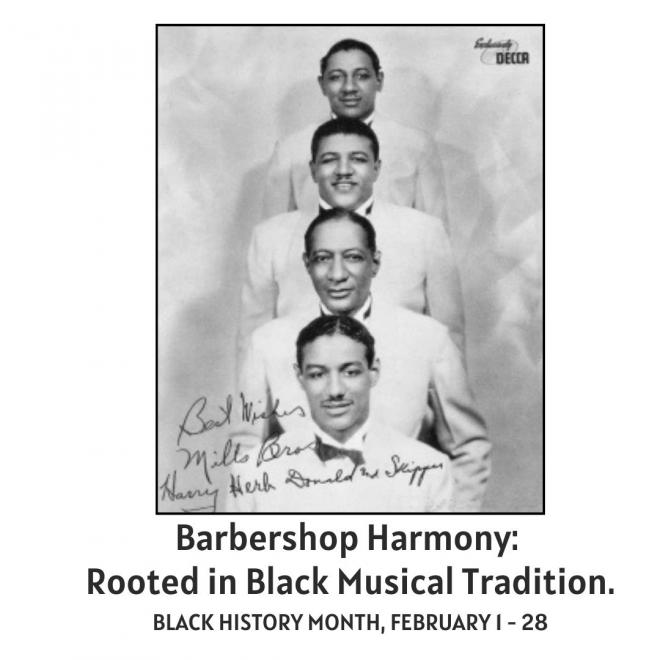Honouring the Black Roots of Barbershop Harmony

As we celebrate Black History Month, we recognize and honour the deep musical heritage of Black artists in shaping barbershop harmony.
Though barbershop is often associated with early 20th-century white quartets, its origins trace back to the rich, improvisational harmonies created by Black musicians in the late 19th century. These singers blended spirituals, folk songs, and call-and-response traditions into the distinctive close-harmony style that became the foundation of barbershop music.
Over time, barbershop’s history was widely rewritten, often erasing the contributions of Black musicians. However, groups like the Fairfield Four and the Mills Brothers, pictured above—a Black quartet that rose to fame in the 1930s—carried the true legacy of barbershop forward. Today, organizations like Sweet Adelines International and the Barbershop Harmony Society are working to acknowledge and celebrate the genre’s true origins, ensuring that the voices of its Black pioneers are never forgotten.
At its heart, barbershop harmony is about unity—voices blending together to create something greater than the sum of their parts. As we continue to sing and share this music, we honour the Black musicians who built its foundation, whose innovation and artistry continue to inspire generations of singers today.
*This photo, of The Mills Brothers, is in the public domain.


